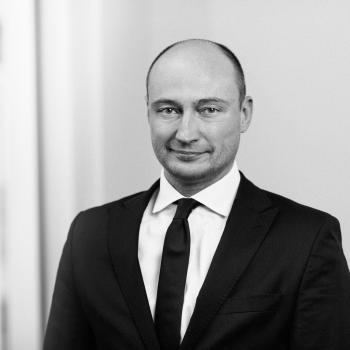NJORD Latvia: Success in the confiscation of assets case representing the former customer of ABLV Bank
NJORD Law Firm succeeded in dismissal of the proceedings of recognition of the assets as derived from crime worth 1.7 million EUR.
In 2019, the Latvian State Police initiated a criminal proceeding on the alleged laundering of proceeds owned by a Ukrainian businessman, placed in ABLV Bank. The criminal proceedings were initiated based on a report by the Financial Intelligence Unit of Latvia (FIU) on suspicious transactions that might be related to the crime. According to FIU those included fraudulent transactions, possible tax evasion in Ukraine and money laundering in Latvia. The assets in question have been arrested.
Even though the client, assisted by NJORD attorneys, took an active position in the pre-trial investigation, and provided the investigation with detailed information about the legality of origin of the arrested assets, it took the investigator more than 2 years to open the special proceedings on allegedly illicit proceeds and submitted the case to the Economic Court of Latvia. The investigator asked the court to recognise the arrested assets as derived from crime (“criminally acquired”) and to confiscate the assets in favour of the state.
NJORD attorneys represented the client both in the pre-trial investigation and in the court proceedings on allegedly illicit proceeds.
The Economic Court reviewed the case in court hearings and rendered a decision on 6 December 2021. In the decision the court highlighted that it was the investigator in the pre-trial proceedings who had to collect enough evidence so that there was no doubt that the “criminal origin” of assets derives from crimes. The case did not establish a possible predicate crime[1]; therefore, the investigation was carried out on the so-called “stand alone” or autonomous legalization[2].
As the court established in its decision, the investigator’s presumption about the criminal origin of the arrested funds is mainly based on the following evidence: the report of the FIU, bank documents, information obtained within framework of international cooperation, documents filed by the owner of the assets and analysis of transactions. The court noted that the facts indicated in the FIU report at any event must be verified by criminal procedural methods, i.e., information laid down in them may remain not confirmed during proceedings. The FIU in this case pointed out suspicions on possible hiding of the received income and recommended that the information on the commitment of a crime be verified.
The information received from the Ukrainian authorities within framework of international cooperation in field of criminal law had not confirmed the suspicion regarding possible tax evasion by a person in Ukraine. In addition to that, NJORD attorneys provided detailed information and documents about the client’s economic activities in Ukraine.
The court assessed all the evidence and established that the client had proven the legality of the source of origin of funds held in ABLV bank to the point of reasonable credibility. Even though, in the opinion of the investigation, the documents related to transactions are fraudulent (i.e., they create a false picture of the alleged legitimacy of transactions), the court agreed with the opinion of our attorneys that only proceeds from crime can be legalized, therefore, in situation where funds received legally are borrowed, there is no reason to consider money laundering. The court also thoroughly assessed the documents on the transactions and recognized that there was no reason to consider them to be fraudulent.
The court recognized that the amount of evidence in the case file did not give grounds to believe that the arrested funds were most likely obtained by a criminal rather than legal means (i.e., the threshold of proof set forth in the Criminal Procedure Law has not been reached). Thus, the evidence collected by the investigation did not prove “beyond reasonable doubt” that there were such actions with assets that have been qualified as money laundering.
The police investigator and the prosecutor disagreed to the judgement rendered by the court and filed an appellate claim and a protest. NJORD attorneys filed objections against the appellate claim and the protest and expressed an opinion that the judgement by the court of the first instance is lawful and must not be abolished.
On 1 February 2022, the Judicial Panel of Criminal Cases of Riga regional court decided to refuse the appellate claim and the protest and to support the judgement by the Economic Court. The decision may not be appealed against.
Attorneys Eduards Vaisla, Dmitri Kolesnikov and Dmitri Nikolaenko provided legal assistance to the client in the case.
[1] Predicate crime means any crime as a result of which proceeds were generated that may become the subject of money laundering (for the purpose of Convention on Laundering, Search, Seizure and Confiscation of the Proceeds from Crime. Strasbourg, 8.XI.1990).
[2] Crime provided for in Section 195 of the Criminal Law of Latvia (“Legalisation of proceeds from crime”) may be investigated as independent/predicate crime, based on indirect evidence indicating criminal origin of assets.


